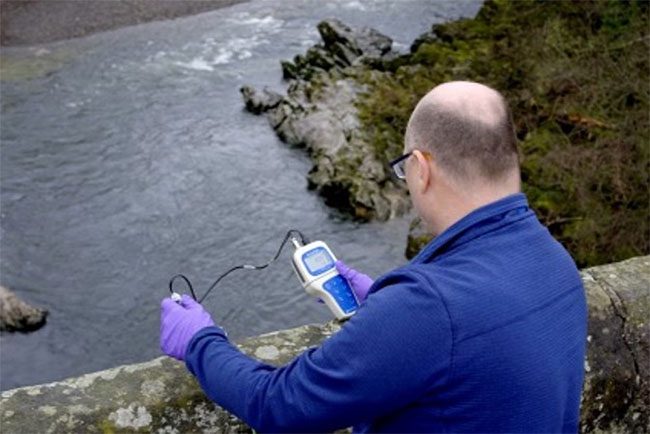A recent study from the University of York has revealed that rivers in the national parks of England are seriously contaminated by various pharmaceuticals, including antidepressants and antibiotics. This poses a significant threat to both ecological health and human well-being.
The research, conducted in collaboration with the Rivers Trust (an environmental charity), found high concentrations of pharmaceuticals in the rivers of the Peak District National Park and New Forest in England.

Some pharmaceuticals found at “concerning levels” for the health of organisms and humans.
Of the 54 sites surveyed, drugs were detected in 52 of them. Notably, the concentration of pharmaceuticals in the rivers of Peak District and Exmoor National Parks was even higher than in major urban areas like London.
The results indicate that some water samples from Lake District, South Downs, and New Forest contained pharmaceutical levels that “could be harmful” to fish and algae, raising concerns among experts about the ecological imbalance in these areas, which are considered biodiversity hotspots.
Professor Alistair Boxall from the Department of Environment and Geography at the University of York stated: “Given the diverse ecological value of these conservation areas, the presence of pharmaceuticals is very concerning. National parks are biodiversity hotspots and essential for our physical and mental health. We need to act quickly to protect these irreplaceable environments and ensure the health of wildlife and visitors.“
The study also pointed out that popular recreational activities in national parks, such as swimming and boating in the summer, could pose health risks when rivers are contaminated with drugs. Scientists warn that the concentrations of certain antibacterial substances in river water have exceeded safe levels, increasing the risk of antibiotic resistance in bacteria.
To address this issue, experts recommend several measures such as creating wetlands, improving septic tank management, and properly disposing of unused or expired medications. These measures aim to restore polluted rivers and protect public health.
Dr. Rose O’Neill, Chief Executive of the campaign to protect England’s national parks, called on the government to “ensure that companies and regulatory agencies are held accountable” to return the rivers in national parks to a “fully healthy state.”





















































